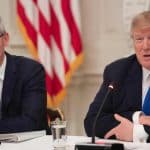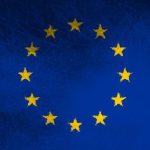A controversial UK government order demanding Apple create a backdoor in iOS encryption has sparked bipartisan outrage among U.S. lawmakers. Both Republican and Democratic representatives have condemned the demand, arguing that it threatens user privacy and global cybersecurity.
Why the UK Wants a Backdoor
The UK government, under its existing surveillance laws, has reportedly instructed Apple to grant access to encrypted user data. This directive aligns with broader efforts by British authorities to enhance digital surveillance capabilities. However, critics argue that such a measure would weaken encryption protections, exposing millions of users to potential cyber threats.

U.S. Lawmakers Voice Concerns
U.S. congressional members from both parties have urged the Biden administration to pressure the UK into rescinding the demand. Senators Ron Wyden (D) and Andy Biggs (R) have warned that compliance with the order could undermine American citizens’ data security. In a letter to National Intelligence Director Tulsi Gabbard, they stressed the risk of setting a dangerous precedent that could be exploited by authoritarian regimes.
Security Risks and Market Implications
Experts warn that any government-mandated backdoor would not only compromise privacy but also expose Apple and other tech companies to potential cyberattacks. The UK’s demand has reignited debates over the balance between national security and individual privacy rights. Former UK National Cyber Security Center chief Ciaran Martin has also opposed the order, stating it would weaken digital security for everyone.
What’s Next?
The UK government has neither confirmed nor denied issuing the directive. Meanwhile, Apple is expected to appeal the order but remains legally restricted from discussing details. If the UK does not back down, U.S. lawmakers suggest reevaluating intelligence-sharing agreements between the two nations. This escalating dispute highlights ongoing tensions between government surveillance policies and the tech industry’s commitment to encryption and privacy.












